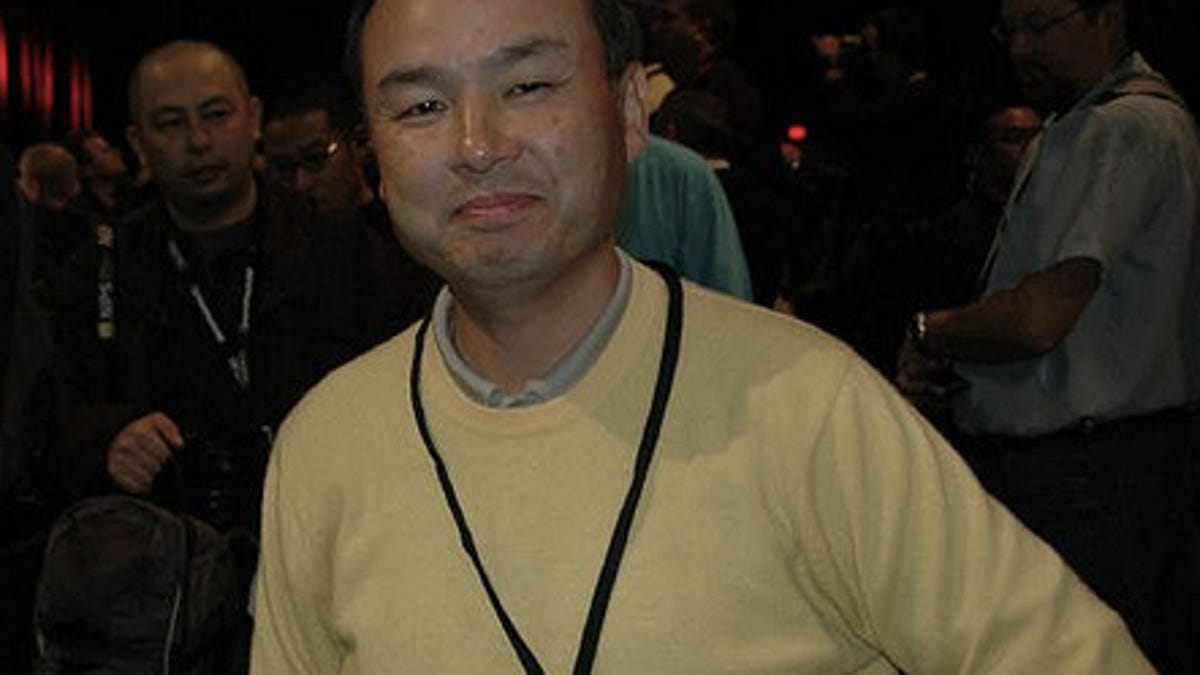Softbank-Sprint: U.S. wireless consolidation or just a land grab?
If Softbank takes a controlling stake in Sprint, it could finally trigger a long-expected realignment of the wireless industry. Or it might just net the Japanese company a whole lot of valuable spectrum.

It's not exactly clear what's behind Softbank's tentative proposal to acquire control of Sprint. But that hasn't stopped lots of folks from trying to make sense of a cross-Pacific deal that hasn't even been formally struck yet.
At least the outline of a possible transaction is coming into focus. According to The Wall Street Journal, Softbank -- which zoomed to success in the Japanese market thanks to a years-long exclusive on the iPhone -- would pony up as much as $12.8 billion to acquire a roughly 70 percent stake in Sprint Nextel. That payment would include both a "multibillion-dollar" investment in Sprint via newly issued shares and a tender offer for additional stock on the open market.
Such a cash injection could be a lifesaver for Sprint, which has suffered mightily ever since its ill-considered 2005 merger with Nextel. The company holds nearly $21 billion in long-term debt, has lost money every year since 2007, and remains about half the size of leading U.S. carriers Verizon Wireless and AT&T in subscriber terms. Sprint also trails Verizon and AT&T in rolling out its next-generation high-speed 4G LTE network, which so far is only operational in a handful of cities.
There is, however, a sticking point: Clearwire, a reseller of 4G wireless service. Sprint owns a large chunk of Clearwire but doesn't control the company, which has its own long-standing financial issues. Softbank apparently covets Clearwire's valuable spectrum holdings, but has no intention of buying the company itself. Instead, according to both the WSJ and CNBC, Sprint is looking at acquiring Clearwire itself, though no deal is yet in sight.
Assuming it resolves that Clearwire situation and closes a deal with Softbank, a more financially secure Sprint could then begin to shake up and consolidate the U.S. wireless industry. It could try to break up the announced merger of T-Mobile and MetroPCS by offering a higher bid for the prepaid-wireless carrier, or wait in hopes of snapping up the combined company.
Alternatively, Sprint might take a run at Leap Wireless, another prepaid-wireless carrier, or strike a deal with Dish Network for its potentially valuable satellite spectrum. (See the WSJ's David Benoit for a good rundown of the possibilities.)
What no one can yet explain, though, is why a Japanese wireless operator like Softbank would want to invest heavily in the U.S. cellular market. Those doubts remain even though Softbank has made some major U.S. investments in the past, including an early stake in Yahoo and acquisitions of a U.S. memory-board maker, a tech trade-show operator and the publisher Ziff-Davis.
Which leads some skeptics to conclude that Softbank may simply be speculating on the value of U.S. wireless spectrum -- a potentially valuable commodity that's both in high demand and, depending on who you believe, short supply.
For instance, take what Craig Moffett, a Sanford Bernstein analyst, told the Time's Dealbook:
There are no synergies whatsoever in a Japanese company buying a US telecom operator. This is tantamount to Japanese buyers buying Rockefeller Center...
Unless they [Softbank] simply think they're investing in U.S. real estate, and it happens to be electromagnetic real estate that they're buying, this is not a merger with anybody. This is just somebody coming in and buying Sprint stock.

